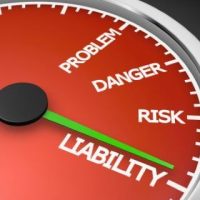When Are Police Liable for High Speed Pursuit Accidents?

Accidents that involve police can be very conflicting for us. On the one hand, police officers in pursuit of a suspect or lawbreaker, need to be able to do what they need to do to catch criminals—potentially, dangerous criminals. On the other hand, there needs to be a line—when is the danger of a high speed pursuit so dangerous, that it risks the lives of innocent drivers?
Policy Varies by Department
Most police agencies have their own independent policies about when the police should engage in, and continue with, a high speed chase, and when police should back down, determining that the risk is not worth the chase.
Department policies can vary—some will allow chases for felonies, and misdemeanors, while others, only for felonies. Some will limit chases to specific kinds of felonies. But you would be surprised to know that many police chases happen for minor traffic infractions, such as running a stop sign.
There must generally be a reasonable belief that whomever is being chased presents such a danger to the public, that it is worth potentially endangering the lives of other drivers in the process of the high speed chase.
This may happen when the person being chased is putting or will put the public in danger (even if the suspect has not actually yet injured anybody), or when the person would be an “imminent danger” to the general public.
Other Factors Must be Considered
But even if the suspect creates a danger to the public, police engaging in high speed chases have to consider other factors as well.
Officers must consider the traffic patterns, road conditions, and the abilities of both the police car and the fleeing car. A high speed chase on a highway may be more warranted than one through a pedestrian heavy retail area. A high speed chase after a Toyota Corolla, which may be relatively easily caught, may be more warranted than chasing a Lamborghini, which won’t easily be caught.
Many departments do have rules that say that a chase may commence, but must be canceled if certain events happen—such as if a suspect flees to a residential or crowded area.
Police also must consider whether the suspect can be caught another way, or later on, in a safer manner.
Liability for Police Chases
As a general rule, police officers that cause accidents when engaging in chases that are against, or not authorized by, their respective department policies, will be held to be liable for accidents caused in the high speed chase.
If a chase is authorized, almost every police department will require its police cruisers to have their lights and sirens on.
All of this means that people injured by police in the process of hot pursuit can second guess or question the logic of such a high speed chase given that the choice to pursue is so situation-specific.
Let us help you if you were injured by a police car, or in the process of a police high speed chase. Call the Knoxville car accident lawyers at Fox Farley Willis & Burnette, PLLC, for a free consultation in your case.
Sources:
timesfreepress.com/news/2017/mar/12/chase-or-not-chasepolice-mut-weigh-cost-dange/
wcnc.com/article/news/investigations/police-pursuits-innocent-victims-officer-liability-lawsuits-north-carolina-supreme-court-aaron-norward-brittany-webb/275-d6c17ff1-afca-4838-8e54-8e865cbdbae0
